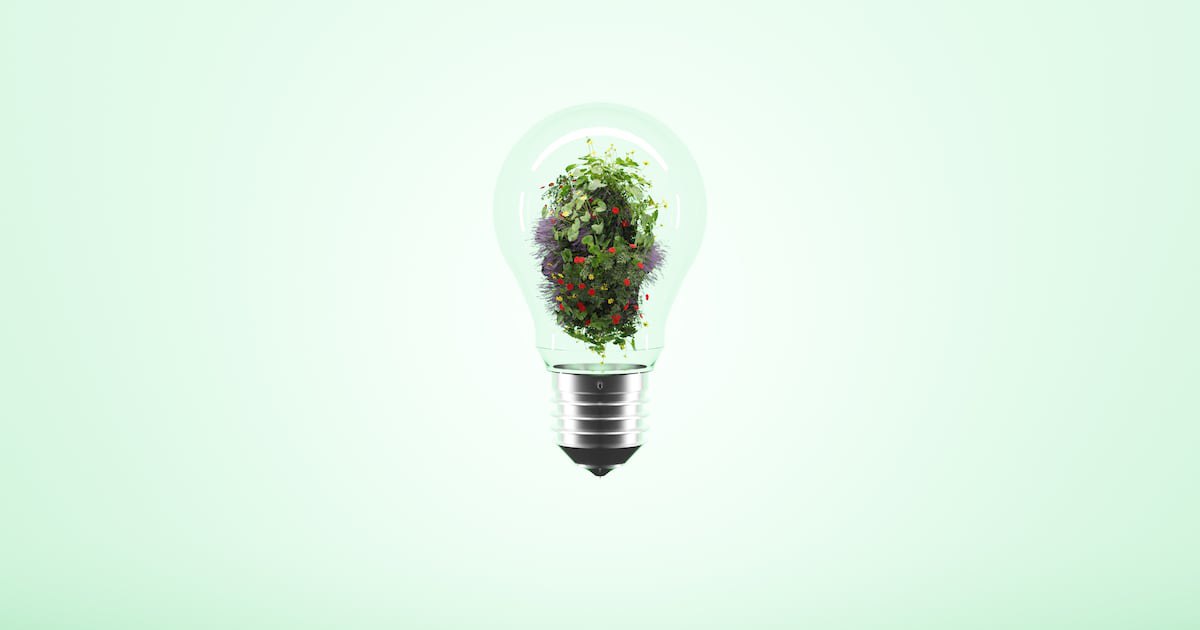High Tech, High Yields: Examining the Use of AI in Agriculture

Dimitra Incorporated
New Horizon Building, 3-1/2 Miles Philip S.W. Goldson Highway, Belize City
info@dimitra.io
New Horizon Building, 3-1/2 Miles Philip S.W. Goldson Highway, Belize City
info@dimitra.io
Dimitra and MANTRA – Dimitra, a global leader in agriculture technology and sustainability solutions. That leverages blockchain and artificial intelligence to support farmers. Has partnered with MANTRA, a layer 1 blockchain platform focused on real-world assets (RWAs). This collaboration aims to bring green agricultural assets onchain. Offering innovative ways for farmers to finance their activities, and enable global investors to engage in sustainable value creation.
Dimitra uses blockchain and artificial intelligence to help smallholder farmers boost productivity and build more resilient agricultural systems. MANTRA brings a secure, regulation-friendly blockchain designed for tokenizing real-world assets, across real estate, commodities, and agriculture. Together, they will unlock new pathways to connect high-impact farming projects with investors seeking transparent, asset-backed opportunities that deliver both returns and positive change.
The first phase of the partnership will focus on cacao production in the Amazon region of Brazil and carbon credit projects in Mexico. In Brazil, Dimitra is working with smallholder farmers to improve cacao yields through the Connected Cacao platform, designed to provide tools for soil analysis, crop monitoring, AI technical assistance and regenerative best practices. Cacao is a high-demand crop, especially among chocolate producers. Tokenizing cacao-based RWAs can open new paths for financing infrastructure, traceability and farmer incentives. Making the entire value chain more profitable and transparent.
In Mexico, Dimitra and MANTRA will leverage Dimitra’s carbon monitoring tools to support a forest conservation project covering over 20,000 hectares, with the potential to generate nearly one million carbon credits in the next ten years. These efforts will produce 100% traceable carbon credits, making it easier to verify, trade and invest. As the global demand for carbon credits continues to rise. Tokenization of carbon projects offers a path to broader access and greater impact.
While the initial projects will focus on Brazil and Mexico. This partnership will establish a framework for tokenizing agricultural projects worldwide. Dimitra’s portfolio includes dozens of agricultural projects in Latin America, Africa and Asia. Many of these projects are economically sound, but struggle to attract funding. With MANTRA’s infrastructure, these initiatives can be turned into investable opportunities that appeal to a growing number of people and institutions looking to make a real impact with real returns.
“This partnership is about unlocking new value from the real economy,” said Jon Trask, CEO of Dimitra. “Through MANTRA’s platform, we’ll be able to turn powerful, regenerative agricultural projects into accessible investment opportunities. Benefiting both farmers and investors.”
“Tokenizing agriculture isn’t just about innovation, it’s about finding solutions to real-world issues long associated with food supply – at scale – and for long-term impact,” said John Patrick Mullin, CEO of MANTRA. “Dimitra is solving real-world problems, with a focus on traceability and transparency – and we’re proud to help bring those to a wider audience. MANTRA Chain was built to support projects like these.”
The partnership follows a string of strong developments from MANTRA, which continues to build momentum in the real-world asset space. Earlier this year, MANTRA was awarded the first DeFi license from Dubai’s Virtual Assets Regulatory Authority (VARA) to operate as a Virtual Asset Exchange, as well as provide Broker-Dealer and Management and Investment Services. It also launched the RWAccelerator – a start-up program for builders and startups supported by Google Cloud.
Dimitra is a leading AI and blockchain-based platform for AgTech driving productive, intelligent and inclusive farming. Dimitra empowers farmers to make their processes smarter through actionable data-driven insights. Now working with farmers and co-ops across 35 countries, Dimitra’s AI-driven solutions equip farmers, agribusinesses, and governments with cutting-edge technology to combat deforestation, increase yields, reduce costs, and mitigate risks. Dimitra ensures seamless access to precision agriculture, supply chain transparency, carbon credit generation, and regulatory compliance.
MANTRA is a purpose-built Layer 1 blockchain for real-world assets, capable of adherence to real-world regulatory requirements. As a permissionless chain, MANTRA Chain empowers developers and institutions to seamlessly participate in the evolving RWA tokenization space by offering advanced technology modules, compliance mechanisms, and cross-chain interoperability. MANTRA holds a Virtual Asset Service Provider (VASP) license from Dubai’s Virtual Assets Regulatory Authority (VARA). To operate as a Virtual Asset Exchange, as well as provide Broker-Dealer and Management and Investment Services.
New Horizon Building, 3-1/2 Miles Philip S.W. Goldson Highway, Belize City
info@dimitra.io
Dimitra, a global leader in agriculture technology and sustainability solutions – that leverages blockchain and artificial intelligence to support farmers – has partnered with MANTRA, a layer 1 blockchain platform focused on real-world assets (RWAs). This collaboration aims to bring green agricultural assets onchain, offering innovative ways for farmers to finance their activities, and enable global investors to engage in sustainable value creation.
New Horizon Building, 3-1/2 Miles Philip S.W. Goldson Highway, Belize City
info@dimitra.io
EUDR has been fraught with challenges, oppositions and delays. But as the clock ticks down to deadline day, one big question remains, will industry be ready?
While many in the food and beverage industry understand the need for the European Union Deforestation Regulation (EUDR), its implementation has also faced some fierce resistance, particularly from those most seriously impacted.
New Horizon Building, 3-1/2 Miles Philip S.W. Goldson Highway, Belize City
info@dimitra.io
Connecting a global community of 550 million farmers, many of whom still rely on analogue systems, to digital services is vital for transforming agriculture. “This transition would enable the collection, analysis, and impactful use of data, providing the support needed to drive meaningful change and improve agricultural practices worldwide,” says Andreas Cerdan, chief commercial officer of Dimitra. An agtech software company, Dimitra uses a blockchain-based operating system in its goal to drive productive, intelligent, and inclusive farming globally.
New Horizon Building, 3-1/2 Miles Philip S.W. Goldson Highway, Belize City
info@dimitra.io
The EU Commission’s recent proposal to revamp sustainability reporting regulations has sparked significant debate.
While large multinationals will still be required to report, the proposed Omnibus measures raise the Corporate Sustainability Reporting Directive (CSRD) thresholds to companies with over 1,000 employees and €50m in turnover, effectively exempting many SMEs from mandatory disclosures.
New Horizon Building, 3-1/2 Miles Philip S.W. Goldson Highway, Belize City
info@dimitra.io
Smallholder farmers around the world continue to face significant challenges, including low yields, limited access to markets, and vulnerability to climate change. These challenges often result in poverty, food insecurity, and environmental degradation. Jon Trask, the enterprising CEO of Dimitra Technology, tackles these challenges head-on through cutting-edge agricultural technology.
Under Jon’s visionary leadership, Dimitra empowers smallholder farmers to increase their productivity, connect to global markets, and adopt sustainable practices—emerging as the Most Admired Leader in the Agriculture Industry For 2025.
Jon Trask’s journey into technology and agriculture began with a strong foundation in supply chain and logistics. Early in his career, he worked across industries like food, automotive, and consumer goods, addressing logistical challenges through innovative technology solutions. However, during these projects, he identified significant inefficiencies at the root of the food chain—particularly with smallholder farmers.
These inefficiencies—limited data access, outdated systems, and disconnected supply chains—are seen in industries like coffee, which depend on millions of farmers linking to global buyers. Recognizing the need to modernize and enhance these processes, Jon founded Dimitra, a company dedicated to equipping farmers with user-friendly technology to promote food security, sustainability, and profitability.
“Dimitra’s passionate team aims to revolutionize the agri-food industry by developing innovative solutions for core challenges and fostering a more sustainable, connected agricultural future.”
Jon emphasized that the technologies integrated into Dimitra’s platform—such as IoT sensors, satellite imagery, drones, and blockchain—are chosen with a farmer-first approach. The decision-making process begins by identifying the specific challenges farmers face, ensuring that the selected technologies directly address their needs and deliver impactful solutions.
Dimitra prioritizes tools that help farmers optimize resources, reduce costs, and improve decision-making. For example, satellite imagery and IoT sensors provide real-time insights into crop health and soil conditions, enabling data-driven actions. AI-powered models analyze this data to predict yields, detect pests, and identify optimal planting strategies, empowering farmers with actionable insights. Gathering crucial data points on the blockchain, Dimitra achieves transparency and compliance across the supply chain.
“The problem-first approach ensures that every innovation implemented serves a purpose, ultimately driving efficiency and sustainability in agriculture.”
Connectivity remains a major obstacle in remote, mountainous regions. To tackle this problem, Dimitra ensured that its application works offline. Enabling farmers to input and access data in the absence of reliable internet services. In Ethiopia, coffee farmers utilize Dimitra’s offline functionality to sync data at local buying stations. Enabling seamless operations despite connectivity barriers. In some areas, Dimitra has even included the purchase of devices as part of the project plan to improve access.
Agricultural technologies are still in their infancy, creating a digital divide for small-holder farmers making it that much harder to build trust with farmers. Farmers are often hesitant to adopt new tools, especially given the rise in mobile apps and platforms, making it crucial for Dimitra to demonstrate the value of their solutions. Dimitra bridges the digital divide through localized workshops, on-ground demonstrations, and by illustrating tangible benefits to farmers. Ensuring they feel confident adopting new technologies.
Dimitra is committed to promoting long-term sustainability in farming through innovative technology. In South America for instance, Dimitra provides Surinamese farmers with real-time comprehensive farming data on their pineapple crop production and supply chains from end-to-end. By leveraging Dimitra’s offering, farmers have access to daily guidance on essential tasks, taking into account the growing cycle, weather, and other factors. From creating digital farmer profiles and registration with their demographic and plot details to tracking crop activities and managing harvests with traceability services, the platform aims to ensure that every step of the pineapple production process—from planting to harvesting—is traceable. The implementation of AI and scheduling tools enables farmers to optimize their practices, thereby prioritizing sustainability in their operations.
A major aspect of Dimitra’s sustainability approach is its carbon credit program. Which enables farmers to earn credits by adopting eco-friendly practices such as reducing emissions and improving soil health. These credits can then be converted into additional income, helping farmers earn a financial incentive to embrace sustainable methods. This program has helped increase farmers’ revenue by up to 30% per hectare, encouraging wider adoption of sustainable farming techniques.
Beyond carbon credits, Dimitra provides expert advice on fertilizer use, pest management, and disease control. To ensure farmers can balance productivity with environmental care. This guidance helps farmers maintain profitability while preserving the health of their land, supporting the long-term viability of their farms.
Dimitra’s impact extends to communities, as seen in Kenya, where the company is helping farmers transition to sustainable avocado farming. This shift to high-value crops has significantly boosted farmers’ revenue. From a few thousand to tens of thousands per hectare—while promoting a more balanced and resilient ecosystem. This combination of financial growth and environmental stewardship demonstrates Dimitra’s commitment to creating lasting, positive change in agriculture.
New Horizon Building, 3-1/2 Miles Philip S.W. Goldson Highway, Belize City
info@dimitra.io
Tortola, British Virgin Islands – A landmark ruling by U.S. District Judge Reed O’Connor on January 10th, 2025, has sent shockwaves through the world of ESG investing. The decision declared that including Environmental, Social, and Governance (ESG) factors in 401(k) retirement plans breaches fiduciary duty. In a case involving American Airlines, this ruling challenges the growing trend of ESG integration in investment strategies, raising questions about whether this marks the beginning of a major shift or if it represents a minority opinion with limited impact. With ESG factors becoming central to global investment decisions, this ruling could potentially reshape how companies and investors approach sustainability practices as a whole.
Korea IT Times discussed with Carlotta Costa, Director of ESG at Dimitra, to share her insights on the success of the ESG industry and its future. Costa emphasized the importance of leveraging technology, such as blockchain, to enhance transparency and sustainability. She dissected the ruling’s potential to create a temporary obstacle rather than a permanent setback for ESG policy-making, underscoring the need for robust ESG frameworks and stakeholder engagement. Costa advocates that the long-term benefits of ESG investments continue to be undeniable despite legal challenges, highlighting an ongoing commitment to sustainability and responsible practices as key factors for future success in the industry.
New Horizon Building, 3-1/2 Miles Philip S.W. Goldson Highway, Belize City
info@dimitra.io
Dimitra Founder / CEO Jon Trask:
In 2025, crypto needs to focus on usability and real-world applications. The industry needs to move beyond speculative narratives and prioritize projects that solve tangible problems, such as supply chain transparency, financial inclusion, and climate resilience. I believe the key trends that we will see in 2025 are:
As we navigate the 2025 blockchain landscape, I truly believe one of the greatest opportunities lies in leveraging blockchain for environmental and social governance (ESG). From carbon credit ecosystems to deforestation compliance, blockchain can empower industries to meet sustainability goals while driving profitability.
New Horizon Building, 3-1/2 Miles Philip S.W. Goldson Highway, Belize City
info@dimitra.io
New Horizon Building, 3-1/2 Miles Philip S.W. Goldson Highway, Belize City
info@dimitra.io